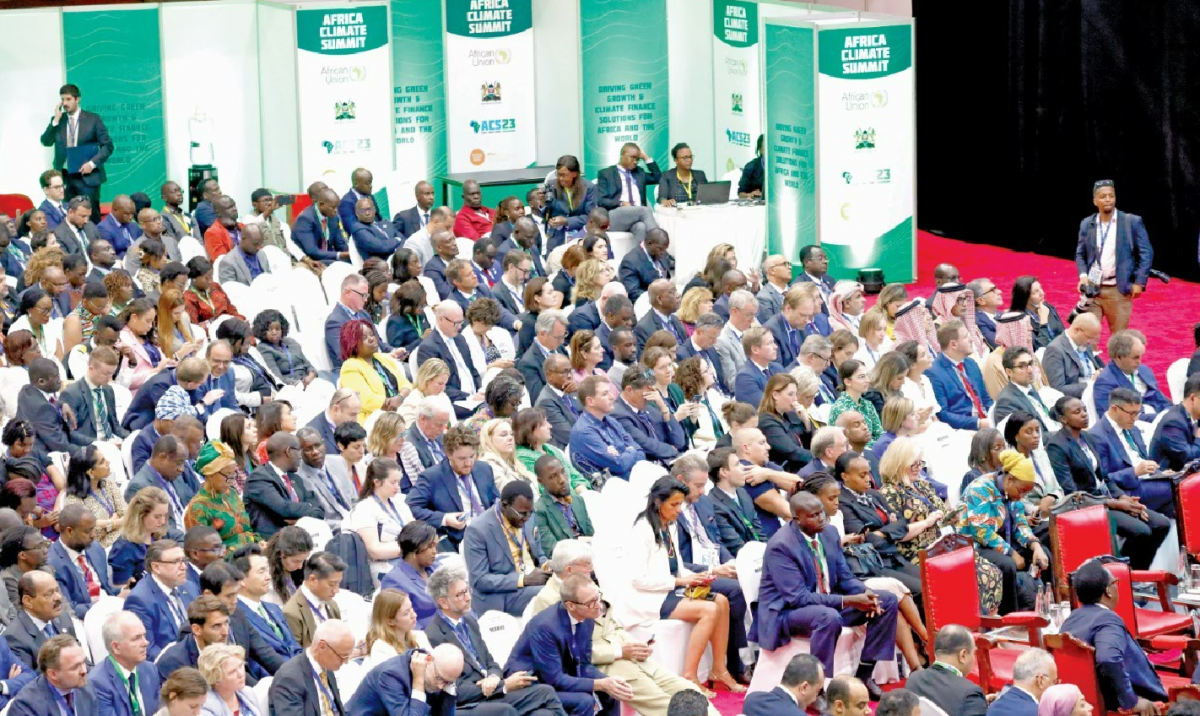COP28 should focus debate on eco-civilisation
By Stephen.Ndegwa, November 30, 2023The 28th Conference of the Parties to the UN Framework Convention on Climate Change (COP28) starts today at the United Arab Emirates, Dubai until December 12.
With global temperatures hitting record highs, and extreme weather events affecting people around the globe, this year’s UN climate change conference, COP28, is a pivotal opportunity to correct course and accelerate action to tackle the climate crisis.
COP28 is where the world will take stock of progress on the Paris Agreement – the landmark climate treaty concluded in 2015 – and chart a course of action to dramatically reduce emissions and protect lives and livelihoods.
In 1987, the concept was popularised by the late Chinese agricultural economist, Professor Qianji Ye, who anchored it in ecological sciences and environmental philosophy. As it gained currency in the country’s environmental conversations from 2007, the Communist Party of China domiciled the achievement of ecological civilisation in its Constitution and in the country’s five-year plan in 2012.
The emergence of “ecological civilisation” as a major concept to guide humankind in its demanding environmental conservation efforts is not a new concept. Although it appears like the idea is new-fangled, it was first published in the “Scientific Communism, Moscow, vol. 2” journal in 1984 in an article titled,
“Ways of Training Individual Ecological Civilisation under Mature Socialist Conditions.”
According to Foreign ministry spokesperson Wang Wenbin’s during his press conference on November 28, President Xi Jinping’s Special Representative, Member of the Standing Committee of the Political Bureau of the CPC Central Committee and Vice Premier of the State Council Ding Xuexiang will attend the World Climate Action Summit in the UAE.
China highly commends the UAE’s leading role as the host of COP28 in advancing green and low-carbon development and galvanise global joint response to climate change.
China will work with all parties to support the UAE’s presidency and use the global stock take as an opportunity to step up implementation, strengthen supporting measures and jointly build a fair, reasonable and win-win global climate governance system.
From the traditional Chinese wisdom that the laws of nature govern all things and that man must seek harmony with nature, to the new development philosophy emphasizing innovative, coordinated, green and open development for all, China has always prioritised ecological progress and embedded it in every dimension and phase of its economic and social development.
Themed “Ecological Civilisation: Building a Shared Future for All Life on Earth” the white paper offers the world a framework of avoiding further deterioration of the environment by enhancing biosecurity. Among other measures, it recommends the enhancement and increase of protected areas, the collection and preservation of rare and valuable biological germplasm resources, establishment of off-site protection systems, ecological protection and restoration projects.
Current studies have warned that the world’s ecological footprint, which has been defined as the quantity of nature it takes to support people or an economy, could reach its limit in the next generation if no action is taken urgently to stem the damage. Over-exploitation of the world’s resources is akin to leaving a scorched earth policy for progeny.
While industrial development has created vast material wealth, it has also caused ecological crises as manifested in loss of biodiversity and environmental damage. A sound ecosystem is essential for prosperity. We need to respect nature, follow its laws and protect it. We need to find a way for man and nature to live in harmony, balance and coordinate economic development and ecological protection, and work together to build a prosperous, clean and beautiful world.
Ecological civilization also calls for upholding multilateralism and building synergy for global environmental governance. International instruments such as the Convention on Biological Diversity, the UN Framework Convention on Climate Change and the Paris Agreement form the legal foundation for environmental governance.
—The writer is a PhD candidate in International Relations
